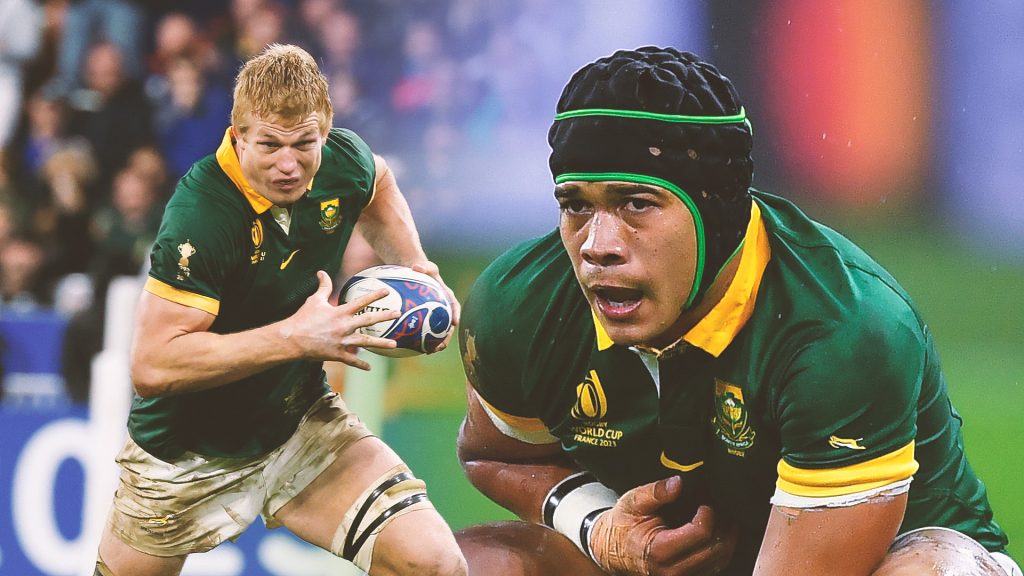ANALYSES: The Evolution of the game

11/12/2024 01:59 AM
OPINION: As a sports science graduate with a deep appreciation for Rugby Union, I find the current landscape of the international game fascinating.
As with the rest of the world, I will keep a keen eye on the year-end Tests, particularly South Africa's progress.
The tactical evolutions of top teams, including the Springboks, All Blacks, Ireland, France, Scotland, and England, are making this a particularly exciting time for the sport.
Tactical kicking in focus
One prominent trend in the game is the increased emphasis on tactical kicking.
The Springboks and the All Blacks have showcased how effective kicking strategies can disrupt opponents' defensive structures and create scoring opportunities.
The Springboks have utilised high balls and strategic grubber kicks, particularly in their matches against Northern Hemisphere teams.
This tactical approach not only leverages their physicality but also puts pressure on the back three of opponents, forcing mistakes and creating chances.
As they tour Europe, we've seen them refine this aspect of their game, taking advantage of the wet, often unpredictable conditions that can favour kicking strategies.
In the year-end matches, teams like Ireland and France will also embrace tactical kicking.
Ireland employs a structured kicking game that emphasizes territory, allowing their formidable forwards to dominate in set pieces.
France, known for their flair, combines this with quick, inventive kicking that keeps opponents guessing, utilising their skilled backs to exploit any gaps created by defensive lapses.
England, under new coaching leadership, is also focusing on tactical kicking massively.
Their recent games have demonstrated a more cautious approach, using kicks to gain territory and set up attacking opportunities while maintaining solid defensive structures.
This evolution reflects a desire to blend traditional English forward play with a more dynamic, modern style.
(Continue below....)
[rp-mc-teams-attack id="3|941810|2024"][/rp-mc-teams-attack] [rp-mc-teams-kicks id="3|941810|2024"][/rp-mc-teams-kicks]
Fitness and conditioning: Key to success
The role of fitness and conditioning is crucial in the current international landscape.
The physical demands of the game require teams to leverage the latest advancements in sports science.
The Springboks have invested in specialized conditioning programs tailored to their game style.
Their ability to maintain physical intensity while executing complex strategies has been on display in their matches.
The rigorous preparation allows them to compete effectively against the likes of England and Scotland, both of whom have their own unique physical demands.
Meanwhile, the All Blacks have continued their tradition of sports science innovation, utilising data analytics to monitor player performance and fatigue.
This meticulous approach ensures that players are match-ready, but can also adapt their strategies in real-time, which is critical during high-pressure games.
Ireland's emphasis on holistic player wellness, France's focus on agility and speed, and England's commitment to conditioning reflect a broader understanding of how fitness impacts game strategy.
Each team ensures that their players are physically and mentally prepared to execute specific game plans under pressure. I think we are in for a very interesting month!
[rp-mc-teams-attack id="3|941369|2024"][/rp-mc-teams-attack] [rp-mc-teams-kicks id="3|941369|2024"][/rp-mc-teams-kicks]
Cultural significance and tactical adaptations
The cultural significance of the game remains a powerful force.
For teams like the Springboks, representing a nation rich in rugby history, their recent success has become a source of national pride.
As they tour Europe, the Springboks face the challenge of adapting their game to different playing styles, showcasing their ability to blend traditional strength with tactical sophistication.
Ireland and France bring their own heritage into the mix, with each team utilising their unique cultural identities to influence their play.
Ireland's disciplined approach contrasts with France's flair and creativity, making for intriguing matchups throughout the series.
England, with its storied tradition, is in a period of transition, seeking to modernize its game while remaining true to its roots.
The clash of styles when they face teams like South Africa and France adds an extra layer of intrigue to the year-end Tests.
The impact of the year-end Tests
The ongoing year-end Tests serve as a platform for showcasing the tactical evolutions of these top teams.
South Africa's tour to Europe not only highlights their tactical adaptability but also allows for a fascinating examination of how different playing styles clash on the field.
The Test has provided fans with thrilling contests that exemplify the changing face of the international game.
As emerging nations continue to rise in competitiveness, established powers must adapt and innovate to maintain their edge.
The interplay of tactical kicking, fitness, and cultural significance ensures that each match is not just a contest of strength but also a chess game of strategy and skill.
Conclusion
As we navigate the year-end Tests and South Africa's European tour, it's clear that the evolution of tactics is reshaping the game at all levels.
The Springboks, All Blacks, Ireland, France, Scotland, England, and other top sides are redefining what it means to compete on the international stage.
For players, coaches, and fans, this is an exhilarating time to witness the growth and adaptation of a sport steeped in tradition yet vibrant with promise.
The coming matches will undoubtedly provide further insights into how rugby continues to evolve and captivate audiences worldwide.
By Ryan Grant
@rugby365com


